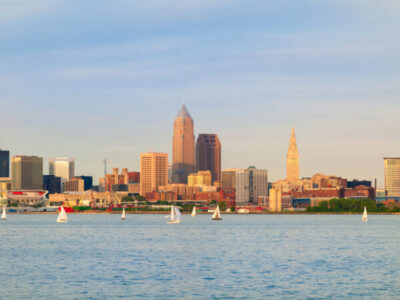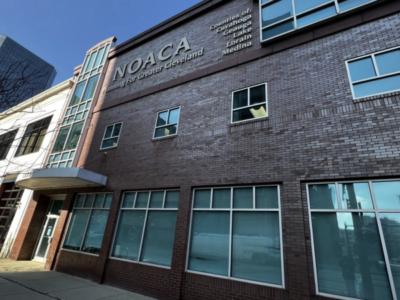
Spring approaches and that means it’s time for the Great Lakes community to make its annual trek to Washington, D.C.
The purpose?
To pitch legislators and agencies on the comprehensive needs of the Lakes from the federal government. It also serves as a rallying point for the various commissions, initiatives and collaborations which lobby on behalf of the Lakes.
The pitch is for funding for the lakes, to promote legislative priorities, and clean water initiatives, with an emphasis this year on infrastructure and farm conversation programs.
The region’s infrastructure needs dovetail with President Trump’s plan and there’s a focus on farm conservation because the Farm Bill is up for renewal in Congress this year.
Main event
The main event is the Great Lakes Commission’s semi-annual meeting of representatives from the eight states and two Canadian provinces.
Tom Crane tells Great Lakes Now that the commission’s priorities are funding for water and waste water infrastructure, as well as sustaining federal funding for the Great Lakes Restoration Initiative (GLRI).
Crane says the Farm Bill “will receive special attention” focused on reducing runoff from farms that carry phosphorous to the Great Lakes. Lake Erie’s algae bloom problems are directly attributable to agricultural runoff in Ohio.
Crane is the commission’s Interim Executive Director.
The commission is expected to vote on a resolution that identifies conservation priorities for the bill.
Commissioners will also take up the North American Free Trade Agreement (NAFTA) negotiations between the U.S., Canada and Mexico that are in process now. President Trump has long-complained that NAFTA is a bad deal for the U.S. and has threatened to pull the U.S. out of the agreement if he doesn’t get what he wants.
The Commission is expected to call for “limited disruption to current trading patterns and uncertainty… resulting from revisions to the agreement,” according to Crane.
Canadian Prime Minister Justin Trudeau, speaking in Chicago last month, emphasized the importance of trade between the U.S. and Canada but said, “Canada will not be pushed into accepting any old deal, and no deal might be better than a bad deal.”
Trudeau added that American workers will be hurt if the U.S. exits NAFTA.
Spotlight on Cathy Stepp keynote
But the spotlight will be on a keynote speech by Cathy Stepp, the controversial new Administrator of the U.S. EPA’s Great Lakes region office in Chicago.
Stepp’s record in Wisconsin as head of the Department of Natural Resources was one of rolling back regulations and making the DNR more business friendly. She was charged by Gov. Scott Walker with bringing a “Chamber of Commerce mentality” to the agency.
Great Lakes advocates fear that Stepp will bring that same attitude to the Trump EPA under Administrator Scott Pruitt.
In his first budget last year, Trump proposed elimination of all funding for Great Lakes restoration programs, $300 million annually. Congress pushed back and the money was restored.
Undeterred, Trump has proposed in his 2019 budget cutting all but $30 million for Great Lakes programs. Additionally, Pruitt has been downsizing the EPA through early retirement programs and buyouts.
Rumors are reoccurring that there will be a consolidation of regional offices and the Great Lakes office could be on the block.
Stepp will have to navigate those issues as she speaks to a room full of Great Lakes advocates.
The Great Lakes Commission’s Crane says they “expect Stepp to be firm in support of the GLRI and to talk about the strong bipartisan congressional support for the program.”
The commission meeting concludes with a breakfast and speeches from members of the Great Lakes congressional delegation.




